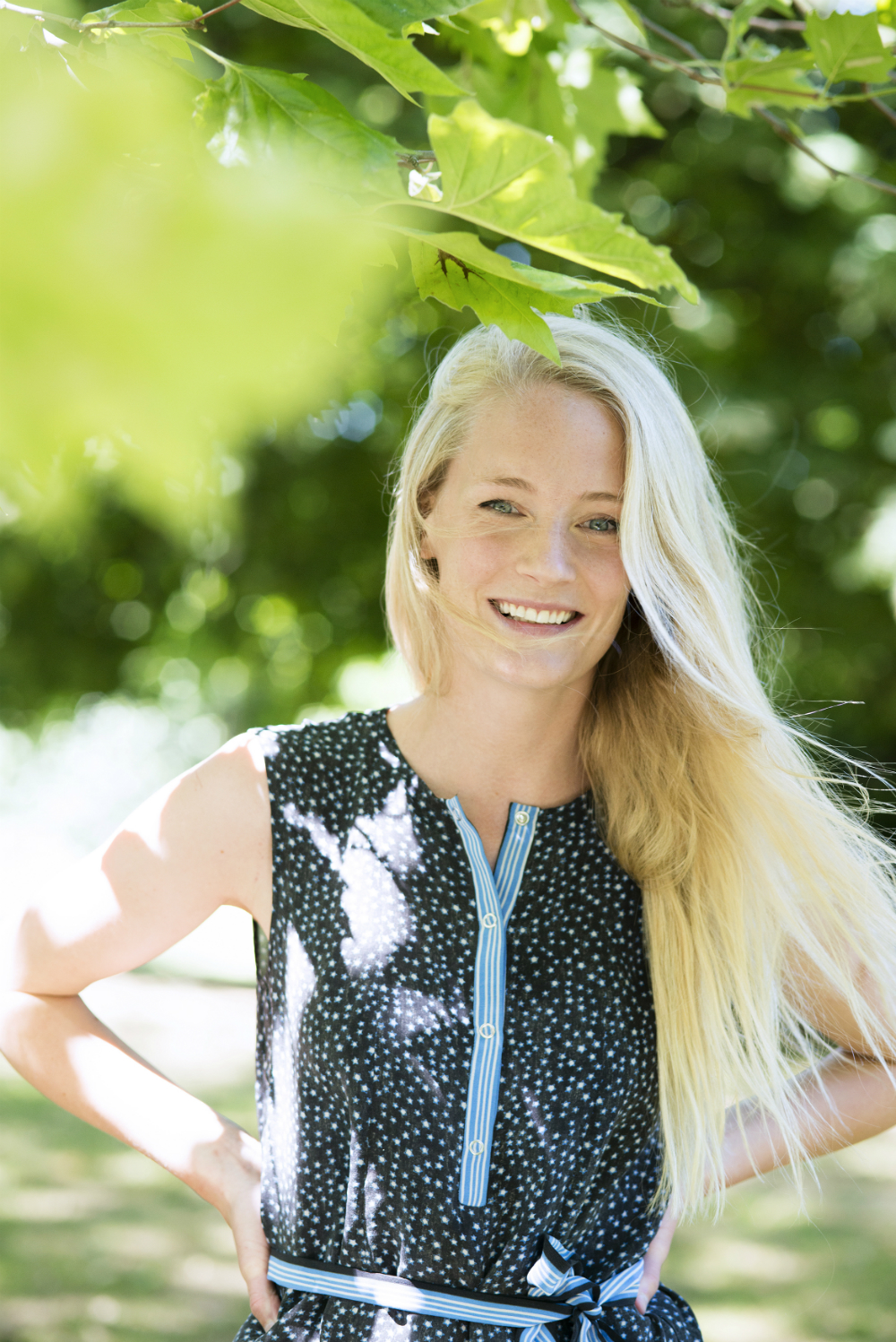Why are 30-something reunions rammed with ‘Made Its’ and ‘Smug Marrieds’
Author Lucy Foley on the unique pressure to have ‘Achieved Things’ by our mid thirties and why everyone’s hiding their anxieties


Celebrity news, beauty, fashion advice, and fascinating features, delivered straight to your inbox!
You are now subscribed
Your newsletter sign-up was successful
Author Lucy Foley on the unique pressure to have ‘Achieved Things’ by our mid thirties and why everyone’s hiding their anxieties
Recently I was invited to a university friend’s engagement drinks, a friend who’d been much better at keeping in touch with a load of people I wouldn’t have seen for a decade. This realisation prompted a Romy-and-Michele-style panic about what to wear, which was really a superficial symptom of a bigger concern: how to present myself to people I’d last seen when I was twenty-two.
It wasn’t as though we’d all completely fallen out of contact. Because we live in the twenty-first century, we’re ostensibly ‘in touch’ via social media. Even though I hadn’t spoken to a large number of them in years I knew the names of their babies and where they’d most recently been on holiday. And they might well have been able to produce a similar level of detail about me. That’s the world we live in. But a real-life meeting is very different from the sort of contact we have via Instagram or Facebook. It’s a well-documented fact that on our profiles we can present a carefully-curated version of ourselves, selecting all the best bits and leaving anything less flattering behind. This meet-up would be exposing. In real life, there’s no flattering filter to hide behind.
There they were at the party - the people who had ‘Made It’ according to society’s barometer of success: becoming youngest-ever partner at their law firm, showing off bellies rounded by pregnancy, new engagement rings, talking about the completion dates for their new houses. People I’d last seen doing body shots or snogging in dark corners or receiving police cautions for running naked down the street at 2am. And perhaps I myself was being grouped by others into the ‘Smug Marrieds’ category - having been with my husband for thirteen years, and married for the last four, even if our childless status was something that had begun to be openly questioned by family members, parents’ friends and Uber drivers. And I found I had to remind myself of how much I love my work as I spoke to one guy who couldn’t understand how I could sleep at night with such a lack of job security: ‘but what happens if your next book doesn’t sell any copies?’ he’d asked, and ‘do you have a pension plan?’

The experience got me thinking about the unique pressure of the thirty-something reunion - as opposed to the twenty-something one. Our twenties, it seems to be universally accepted, are for messing around, trying new things - countries, jobs, partners - making mistakes. But suddenly, in our thirties, as at perhaps no other stage in our lives, it feels as though there is a new, sudden demand for us to have ‘Achieved Things’. To be sensible, adult, settled. To have made significant headway in the career of our choosing — even if it took us most of the previous decade to decide what it was we actually wanted to do. We should have a mortgage, found a partner, have or be about to have children. And arguably this pressure is amplified for women, thanks to the biological sell-by-date the world seems so keen to remind us is stamped on our wombs. But it’s definitely not exclusive to women, as a straw poll of my thirty-something male friends attests. They’re worried about falling behind their peer group in terms of life achievements, the direction their career is going in and, particularly among the single ones, about their own biological clocks, now that there’s been more research into the health implications of being an older father.
The whole experience at that drinks was also, in part, inspiration for my novel, The Hunting Party. On the surface the book is a murder mystery ‘whodunit’ puzzle. But on another level it’s also about thirty-something angst. The characters, who have met up in a remote part of the Scottish Highlands to celebrate New Year’s Eve, have been friends since they were at university together more than a decade ago. On the surface they all have fairly enviable lives (and are pretty over-entitled to boot). But in reality, they’re all hiding their own anxieties— whether they’re related to fertility struggles, career disappointments, money troubles or concerns that they’re too wedded to their work at the expense of everything else. None of them are really ‘winning’ at their thirties in the way they appear to be. And part of this is because of the way in which they are measuring their own lives against those of their peers.
Because it’s exhausting, comparing yourself to others. Life isn’t a race… because (not to be morbid or anything) if it is, then what’s the finish line? In 2019, when there are so many choices available to us in terms of how we love and work and live. And when we know what makes one person happy may be very different from the next, why are we still so obsessed with measuring up to some standard that’s really a throwback to an earlier age? We need to let go and allow ourselves to do our own thing, in our own time. Don’t be like the characters in The Hunting Party. Because - spoiler alert - it doesn’t work out so well for them.
Celebrity news, beauty, fashion advice, and fascinating features, delivered straight to your inbox!
*The Hunting Party by Lucy Foley, £8.99, HarperFiction, is available in paperback, ebook and audio now.
Maria Coole is a contributing editor on Marie Claire.
Hello Marie Claire readers – you have reached your daily destination. I really hope you’re enjoying our reads and I'm very interested to know what you shared, liked and didn’t like (gah, it happens) by emailing me at: maria.coole@freelance.ti-media.com
But if you fancy finding out who you’re venting to then let me tell you I’m the one on the team that remembers the Spice Girls the first time round. I confidently predicted they’d be a one-hit wonder in the pages of Bliss magazine where I was deputy editor through the second half of the 90s. Having soundly killed any career ambitions in music journalism I’ve managed to keep myself in glow-boosting moisturisers and theatre tickets with a centuries-spanning career in journalism.
Yes, predating t’internet, when 'I’ll fax you' was grunted down a phone with a cord attached to it; when Glastonbury was still accessible by casually going under or over a flimsy fence; when gatecrashing a Foo Fighters aftershow party was easy-peasy-lemon-squeezy and tapping Dave Grohl on the shoulder was... oh sorry I like to ramble.
Originally born and bred in that there Welsh seaside town kindly given a new lease of life by Gavin & Stacey, I started out as a junior writer for the Girl Guides and eventually earned enough Brownie points to move on and have a blast as deputy editor of Bliss, New Woman and editor of People newspaper magazine. I was on the launch team of Look in 2007 - where I stuck around as deputy editor and acting editor for almost ten years - shaping a magazine and website at the forefront of body positivity, mental wellbeing and empowering features. More recently, I’ve been Closer executive editor, assistant editor at the Financial Times’s How To Spend It (yes thanks, no probs with that life skill) and now I’m making my inner fangirl’s dream come true by working on this agenda-setting brand, the one that inspired me to become a journalist when Marie Claire launched back in 1988.
I’m a theatre addict, lover of Marvel franchises, most hard cheeses, all types of trees, half-price Itsu, cats, Dr Who, cherry tomatoes, Curly-Wurly, cats, blueberries, cats, boiled eggs, cats, maxi dresses, cats, Adidas shelltops, cats and their kittens. I’ve never knowingly operated any household white goods and once served Ripples as a main course. And finally, always remember what the late great Nora Ephron said, ‘Everything is copy.’
